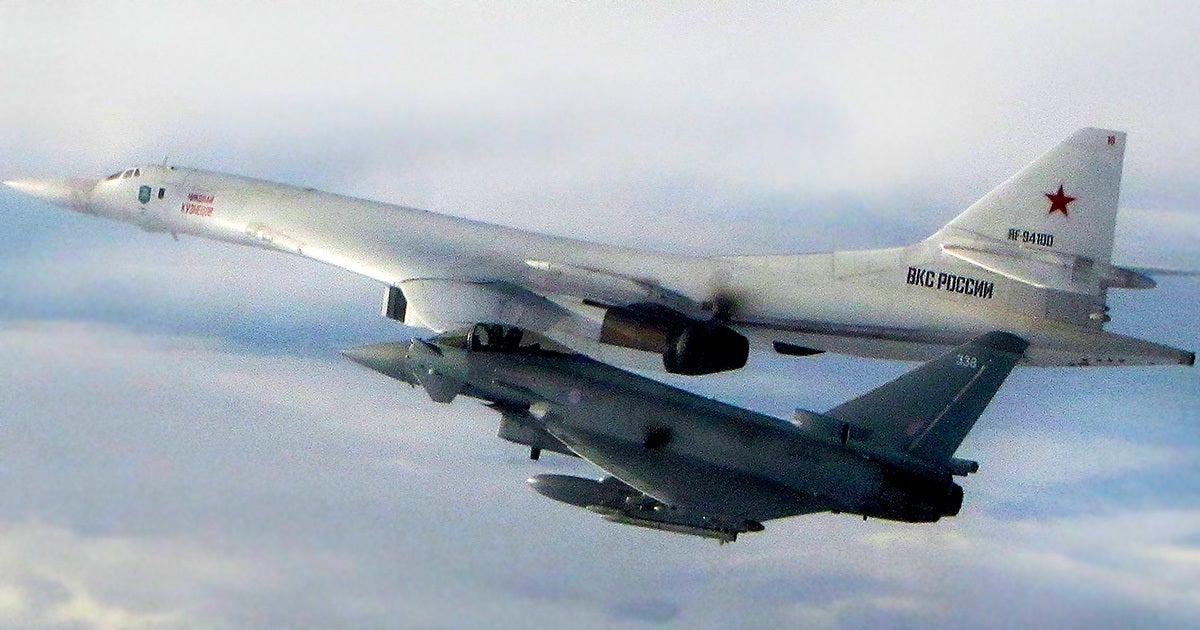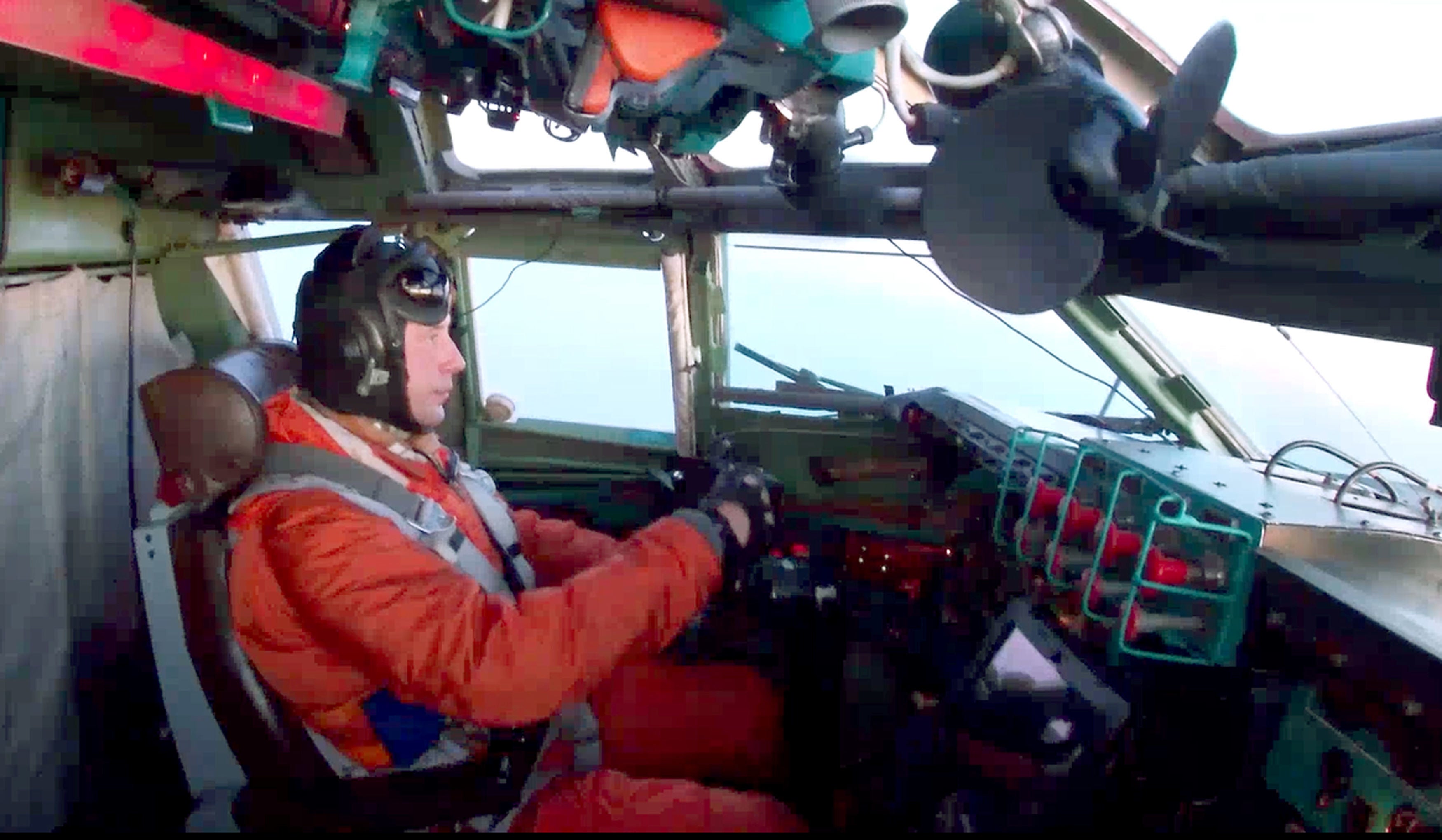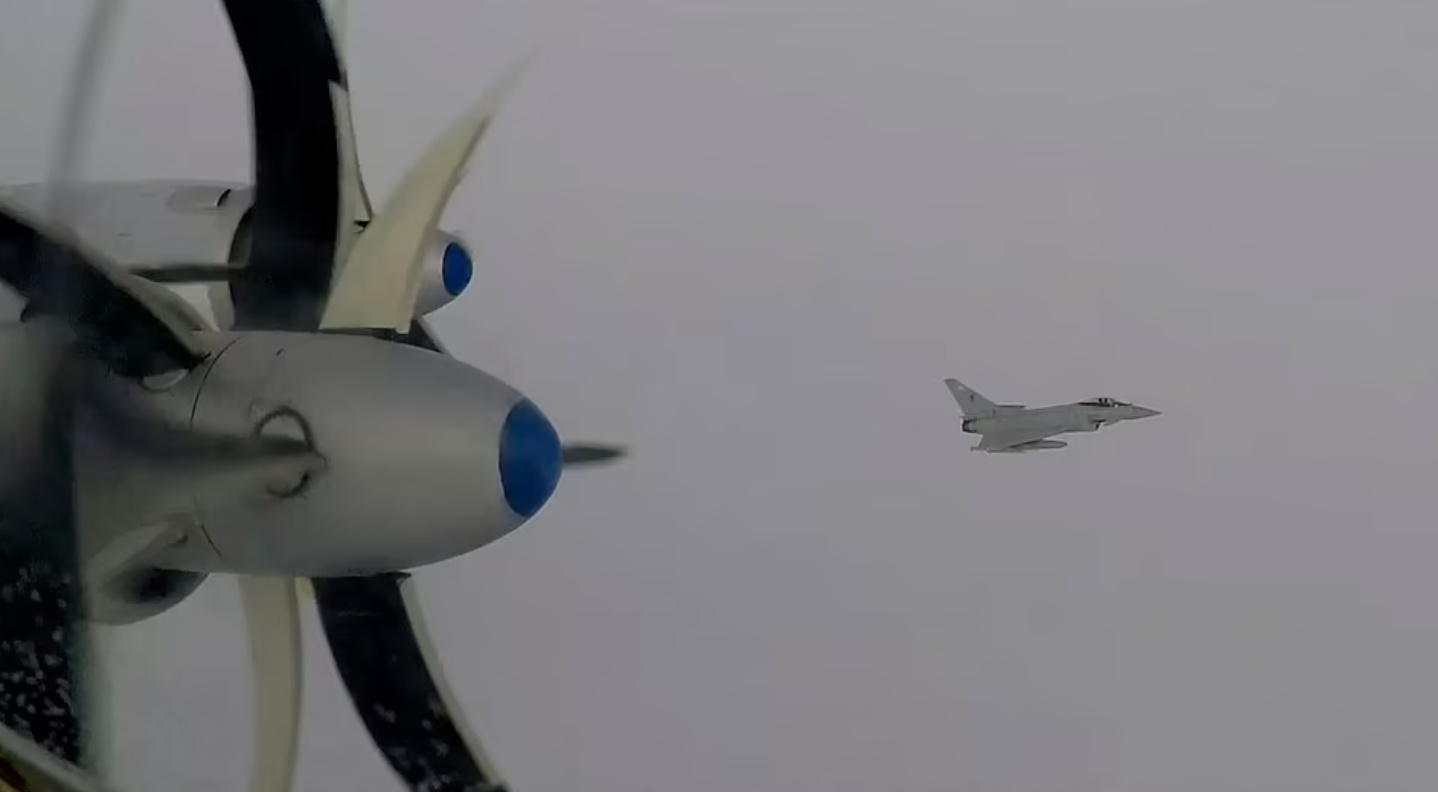RAF fighter jets scrambled to intercept Russian planes near UK 136 times in 17 years
There have been a total of 504 RAF Quick Reaction Alerts incidents since 2005
Your support helps us to tell the story
From reproductive rights to climate change to Big Tech, The Independent is on the ground when the story is developing. Whether it's investigating the financials of Elon Musk's pro-Trump PAC or producing our latest documentary, 'The A Word', which shines a light on the American women fighting for reproductive rights, we know how important it is to parse out the facts from the messaging.
At such a critical moment in US history, we need reporters on the ground. Your donation allows us to keep sending journalists to speak to both sides of the story.
The Independent is trusted by Americans across the entire political spectrum. And unlike many other quality news outlets, we choose not to lock Americans out of our reporting and analysis with paywalls. We believe quality journalism should be available to everyone, paid for by those who can afford it.
Your support makes all the difference.RAF jets have been sent to intercept Russian aircraft near the UK a staggering 136 times since 2005 - with two incidents in the last two days alone.
The figures have emerged after Typhoon fighter jets intercepted and escorted four Russian Bear aircraft out of a UK ‘area of interest’ on Wednesday and Thursday, amid growing tensions in Ukraine.
In 17 years there have been 504 quick reaction alerts (QRAs) throughout the UK’s airspace involving Typhoon fighter squadrons based at RAF Coningsby in Lincolnshire and RAF Lossiemouth in Moray, Scotland.
More than a quarter have involved Russian aircraft, with call outs ranging from just one in 2006 to a peak of 19 in 2007.
The number of incidents have varied wildly each year with no obvious pattern, though the largest annual numbers were between 2007 and 2009.
When Vladimir Putin was re-elected in 2012 there were nine alerts and then when he won again in 2018 there were seven, the same year former Russian military officer Sergei Skripal was poisoned in Salisbury.
Earlier this week Boris Johnson warned Putin that the massing of as many as 100,000 Russian troops on the Ukrainian border represented a “clear and present danger”, and that invading the country would be a “military disaster” for Moscow.
But Putin has never held back from confrontation, as the RAF call out figures show.

Although Russian military aircraft have never entered UK airspace with authorisation, the interception missions have been dramatic - with past interactions involving up to half a dozen Russian aircraft.
In March 2020 Russian fighter jets were intercepted by RAF Typhoons three times in just six days.
In one incident six RAF fighter jets were scrambled to intercept Russian bombers after they came close to British airspace.
An undisclosed number of Tupolev Tu-95 Bears, Russian aircraft used as strategic bombers and maritime patrol planes, headed towards northwest Scotland.
The RAF deployed two pairs of Typhoons from RAF Lossiemouth near Moray and a third pair from RAF Coningsby in Lincolnshire to force them to change course.

In November 2020, the RAF intercepted two Russian anti-submarine aircraft over the North Sea skirting around the edge of UK airspace. The Typhoon fast jets were scrambled from RAF Lossiemouth to track down the Russian Tu-142 Bear F aircraft.
Often, Russian military aircraft switch off electronic equipment which allows passenger jets and air traffic controllers to see them, causing major disruption to international airspace.
In one of the largest missions on record, RAF jets were forced to intercept six Russian bombers over the Black Sea as they flew close to Nato airspace.
In an article written for the UK Defence Journal in March 2020, after a similar incident in which Russian Tupolev bombers – which are codenamed “Bears” by Nato – were escorted from the UK area of interest, former RAF pilot Andy Netherwood said one of multiple reasons for the UK to intercept these flights is “to demonstrate capability and intent”.

A spokesperson from the RAF said: “The RAF has routinely intercepted, identified and escorted Russian aircraft transiting through international airspace in the vicinity of the UK. Russian military aircraft have never entered UK sovereign airspace without authorisation.
“The Royal Air Force’s primary responsibility is to defend the UK’s airspace, 24/7, 365. The RAF remains constantly alert and ready to intercept any potential airborne threat around UK airspace.
“QRA operations entail the entire UK Air Defence system being held at immediate readiness. This includes RAF aircraft and crews that can take off within minutes to protect the whole of the UK’s airspace.”

TIMELINE OF RAF CALLOUTS TO DEAL WITH RUSSIAN PLANES
2005 - 4
2006 - 1
2007 - 19
2008 - 11
2009 - 11
2010 - 7
2011 - 10
2012 - 9
2013 - 8
2014 - 8
2015 - 8
2016 - 5
2017 - 3
2018 - 7
2019 - 8
2020 - 11
2021 - 4
2022 - 1

Join our commenting forum
Join thought-provoking conversations, follow other Independent readers and see their replies
Comments